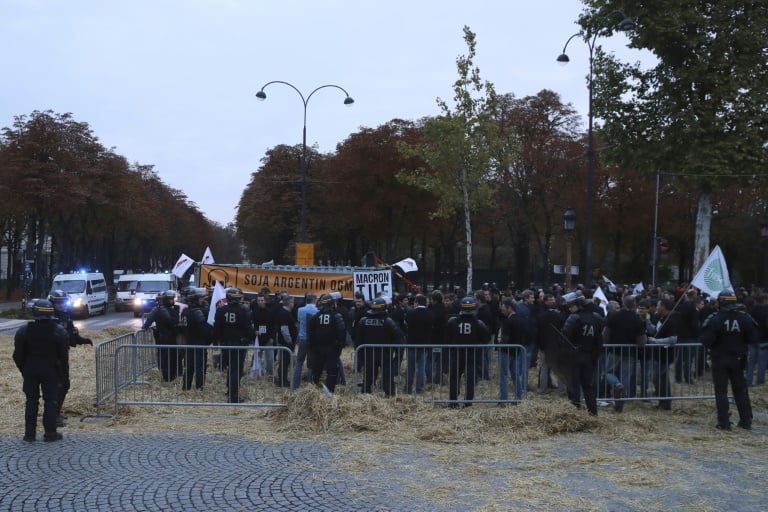Former HR manager jailed for stealing millions from special needs school
EU states have been deadlocked for more than a year over whether to declare that the chemical – used in US agro-giant Monsanto’s best-selling herbicide Roundup — is safe.
More than 1.3 million people this year signed a petition demanding that Brussels should ban it, while leading states like France have opposed a renewal, although Paris is now softening.
The European Commission has proposed that glyphosate’s licence should be renewed for another 10 years in December, on the grounds of a report by the bloc’s food safety agency saying it does not cause cancer.
National experts countries are due to review the decision on Thursday and Friday in Brussels but no vote is expected yet.
“The commission is working with member states to find a solution that enjoys the largest possible support,” a commission spokesman said.
– Carcinogen row –
The weedkiller deadlock has dragged on since June 2016, when its previous 15-year licence expired.
EU states said then they were unable to make a decision, so the Commission gave temporary 18-month renewal of glyphosate’s licence while more scientific evidence was amassed.
Earlier this year the European Food Safety Authority (EFSA) ruled that glyphosate should not be classified as a carcinogen, and the commission proposed the renewal in June.
But the ruling has failed to ease concerns among member states and among the public.
Opponents of glyphosate, led by environmental group Greenpeace, point to other research from the World Health Organization that concludes it may be carcinogenic, and are calling for an outright ban.
A 2016 review carried out by experts from both the WHO and the UN Food and Agriculture Organization said “glyphosate is unlikely to pose a carcinogenic risk to humans from exposure through the diet”.
France — Europe’s biggest food producer — and Austria are the only EU countries to have come out publicly against renewing the licence.
But the French government earlier this month backtracked and said it could support it if the renewal is for a shorter period, such as five to seven years.
Only five member states expressed support for the commission proposal when AFP contacted all the bloc members and received replies from half of them.
Most of those who replied said they were not yet ready to make a decision.
– ‘Hijacked by populism’ –
Europe’s main farmers union, the Copa-Cogeca, said there is no alternative but to renew the licence if the continent wants to maintain yields.

Some 250 farmers protested in Paris last week against the import of agricultural products treated with herbicides like glyphosate, as EU states mull whether or not to extend the licence for the widely-used weedkiller
If there is no vote for renewal, it will expire at the end of December. But it will still be possible to use up glyphosate stockpiles for another year.
In a sign of the tensions, the European Parliament has been asked by its political leaders to deny access to Monsanto executives and lobbyists, with a decision possible on Tuesday.
Monsanto maintains glyphosate “meets or exceeds all requirements for full renewal under European law and regulation” and charged the renewal procedure has in “many respects been hijacked by populism.”